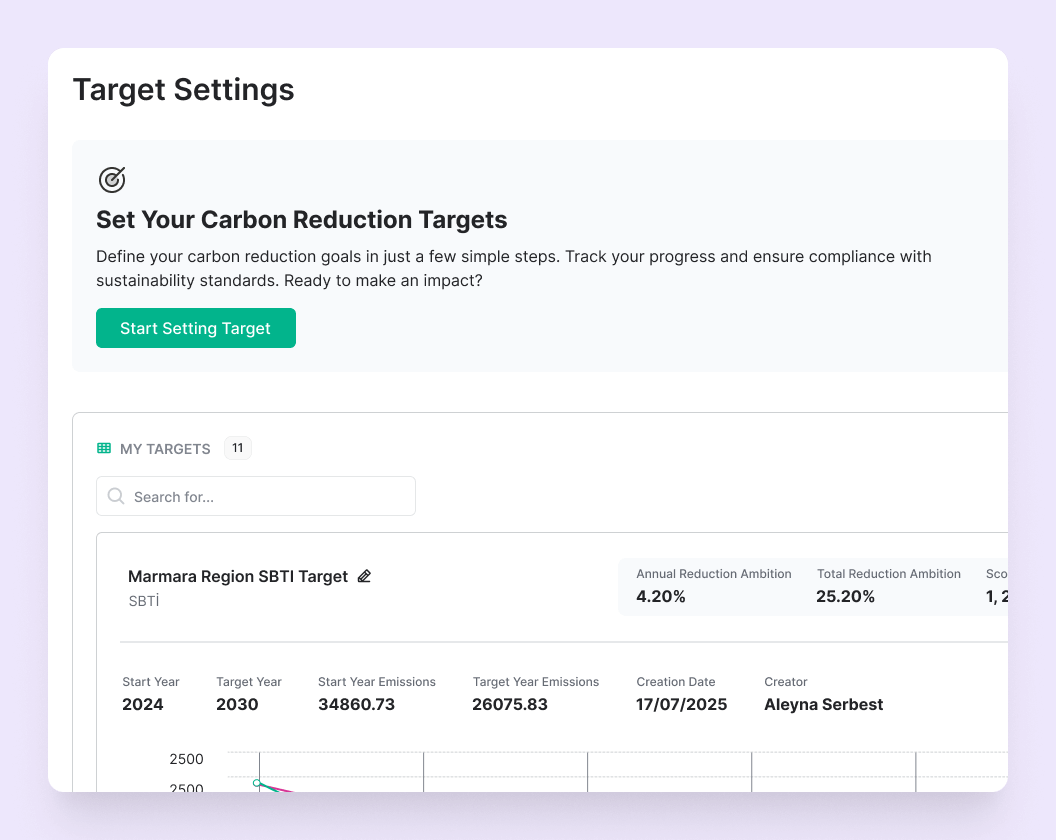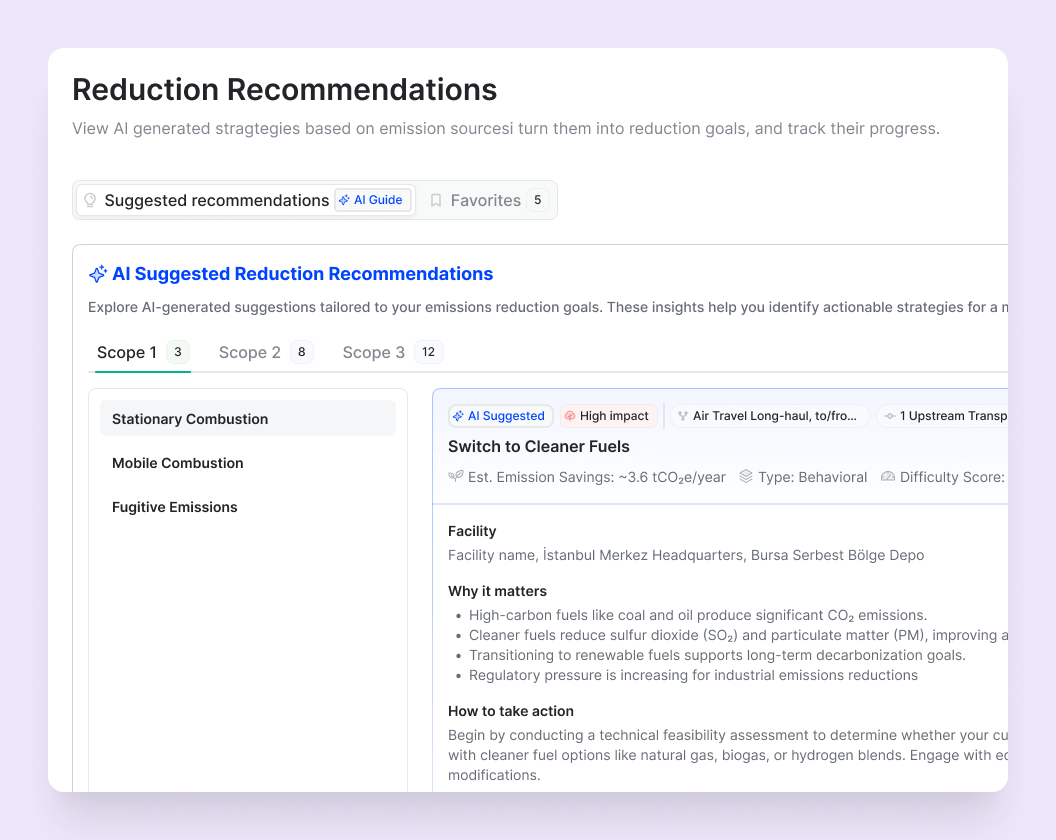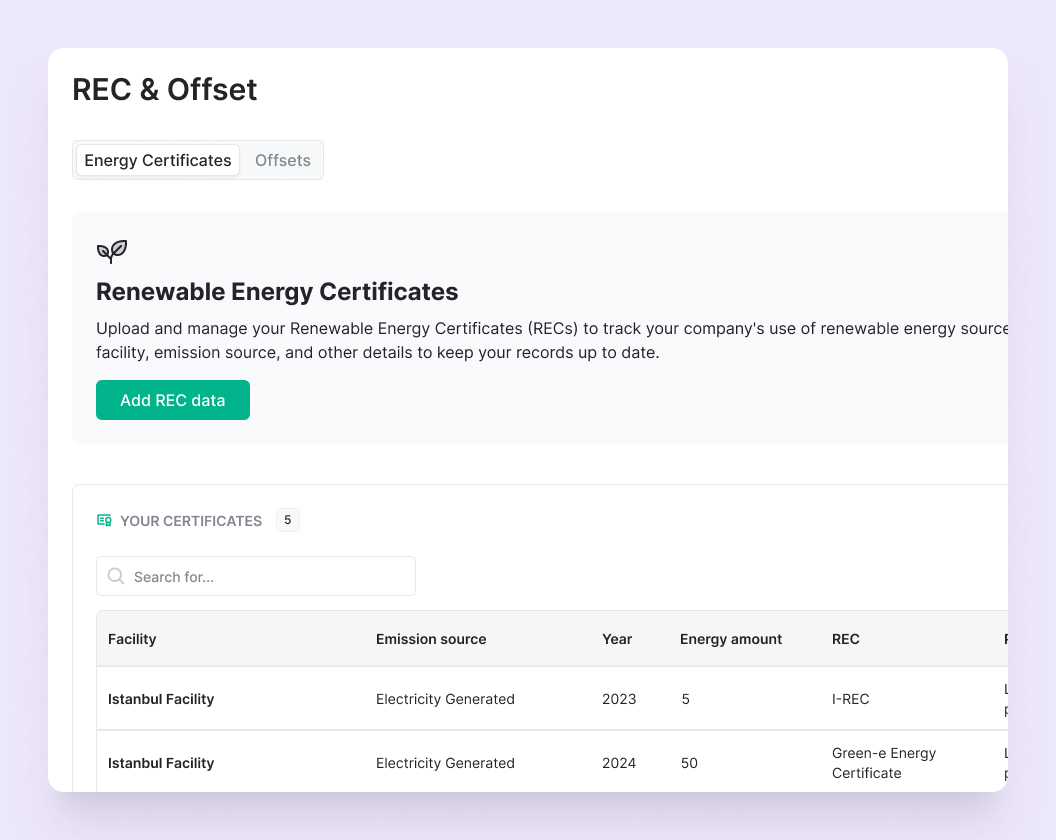Take Action
Turn Carbon Insights Into Measurable Action. Reduce with Confidence
Carbondeck’s Impact Strategist AI helps you reduce emissions across Scope 1-2-3 — from setting targets to applying RECs and verified offsets. Every action is structured, traceable, and powered by AI to help you move with confidence.
Set My First Reduction TargetFrom Single Action to Collective Progress
AI That Recommends What to Do Next
Impact Strategist Agent reviews your footprint and provides uniquely designed recommendations for your sector and company — using training built on real consultancy expertise and emissions data.
Track RECs and Offsets with Full Transparency
Upload certificates, apply offsets, and track renewable energy claims — all fully documented, audit-ready, and integrated into your overall reduction progress.
Monitor Progress Over Time
Visual dashboards and status labels show exactly where you stand — so you can course-correct quickly, stay on target, and prove progress over time.
FAQ
Can I set and track emission reduction targets using Carbondeck?
Yes. All Carbondeck plans allow you to define custom emission reduction targets and monitor your progress over time.
Here’s how it works across plans:
- All Plans (Free, Booster, AI Agents, Enterprise): You can define custom reduction goals by scope and facility, compare them to actual emissions, and monitor progress with visual indicators like timelines and status labels (On Track, Behind). Targets can be broken down per site, helping teams stay aligned and focused on measurable action.
- AI Agents Plan: In addition to target tracking, the Impact Strategist Agent transforms your data into tailored reduction strategies — without external consultants. You’ll receive AI-generated recommendations, or define your own actions (including scope, CO₂e target, and timeline), all visible through a centralized dashboard. Every initiative is trackable, auditable, and backed by domain expertise.
Whether you're setting basic goals or managing a company-wide reduction roadmap, Carbondeck gives you the structure and visibility to take action and prove results.
What is REC? How can I integrate it with Carbondeck?
REC (Renewable Energy Certificate), equivalent to YEK-G in Turkiye, is proof that each 1 MWh of electricity was generated from renewable sources. Organizations use RECs to account for clean energy use and reduce emissions aiming to meet net zero goals.
Carbondeck makes REC management seamless and audit ready:
- Upload and manage RECs directly within the platform
- Assign certificates to specific facilities for location-level accuracy in Scope 2 reporting
- Visualize your renewable energy impact with year-over-year graphs and contribution tracking
- Automatically apply RECs to market-based and location-based Scope 2 calculations
- Maintain compliance with global standards, with full traceability and documentation for audits
With Carbondeck, your renewable energy usage is fully integrated into your emissions profile — transparent, verifiable, and aligned with reduction targets.
What are the most effective ways to reduce carbon emissions?
There’s no one-size-fits-all approach, but effective carbon reduction always starts with a clear, accurate footprint — then moves to targeted action. In Carbondeck, this process typically follows four steps:
- Measure & identify hotspots – Calculate Scope 1, 2, and 3 emissions, then use analytics to find the areas with the highest impact potential.
- Evaluate options & model impact – Compare strategies like renewables, efficiency upgrades, process changes, and supplier shifts before committing resources.
- Implement targeted actions – Switch to green electricity (RECs, PPAs), improve efficiency, electrify fleets, and redesign procurement for lower emissions.
- Address residuals & track progress – Apply removals or high-quality offsets for what’s left, with every action traceable and performance monitored over time.
The most successful companies treat reduction not as a one-time initiative, but as an ongoing process — supported by data, AI-powered insights, and cross-functional alignment.
How can businesses reduce their carbon footprint?
Start by calculating emissions across all scopes, identify hotspots (like energy use or supplier emissions), then take targeted actions — such as purchasing renewable electricity, upgrading equipment or choosing lower-carbon materials. Carbondeck helps teams act with data-driven clarity.
What are carbon credits and carbon offsets?
Carbon credits are certified units that represent the reduction or removal of one metric ton of CO2e through climate projects such as reforestation, renewable energy, or methane capture.
Carbon offsets refer to the use of those credits to compensate for emissions you cannot yet eliminate — typically as part of a carbon neutrality or net zero strategy.
Put simply:
- A carbon credit is a verified unit of past climate impact you can purchase or trade.
- A carbon offset is the action of neutralizing your emissions through reductions or removals.
Carbondeck helps you track and report both — ensuring your mitigation efforts are traceable, aligned with global standards, and ready for audits.
Have more questions? Visit Carbondeck Help Center.




